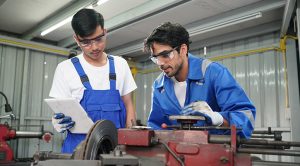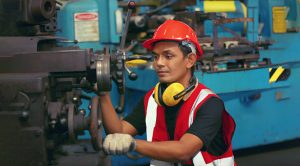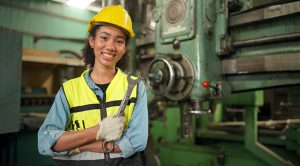Mastering Machinery: The Mechanical Engineer's Pursuit
04 Aug 2023
Casting the World, Forging the Campus, Shaping the Universe, Welding Branches of Engineering- We are the Men, We are the Machine, We are the Mechanical Engineers!
Shaping Society through Mechanical Ingenuity
In a world where dreams are transformed into reality, where innovation drives humanity forward, a tribe of visionary individuals emerge as distinguished Mechanical Engineers.
With the power to harness the balance of gears, the elegance of motion, and the sheer force of machinery, these architects of ingenuity bring life to the inanimate, transforming the mundane into the extraordinary. While each individual's motivation for pursuing a career as a mechanical engineer may vary, some common factors drive people to choose this profession. A distinctive reason for aspiring mechanical engineers is their passion and fascination for technology and machinery, and curiosity in understanding their functioning. They are interested in learning about the fundamentals of mechanics, thermodynamics, fluid dynamics, and other engineering fields. They are more inclined to use scientific ideas to create and enhance mechanical systems and solve challenging issues. A mechanical engineering student's motivation to give back to society is vital in forming and advancing the community in which they live. They create, refine, and support various mechanical systems and technologies directly influencing culture.
Mechanical engineers have the chance to improve society and make a difference by designing energy-efficient systems and environment-friendly production procedures.
Let us Understand the Market Dynamics of Mechanical Engineers
The market dynamics for mechanical engineers are undergoing a significant transformation in recent years. The conventional responsibilities of mechanical engineers are changing as a result of technological developments and the increase in automation. There is an unprecedented rise in the need for mechanical engineers with knowledge of robots, artificial intelligence, and renewable energy. Organizations are continually searching for experts that can create innovative products and optimize production procedures by combining mechanical engineering fundamentals with advanced technologies. Additionally, there is an increased need for mechanical professionals who can create energy-efficient components that will lead to the progress of sustainable technologies. As a result, mechanical engineers today must continuously up-skill themselves and adapt to the changing landscape by embracing emerging technologies, interdisciplinary collaboration, and a sustainable mindset. This vital shift presents exciting opportunities for mechanical engineers to be at the forefront of technological advancements and make a meaningful impact in various industries.
Recognizing the dynamic nature of the market, Manav Rachna University, renowned for its excellence in education, presents exceptional opportunities through its B.Tech mechanical engineering course. The program is meticulously crafted to instill in students the invaluable traits of analytical thinking and adept problem-solving skills. In this fascinating field, engineers continuously harness their ingenuity to conquer design complexities, amplify operational efficiency, and achieve optimal performance levels. A gratifying journey awaits those who take up a career as a mechanical engineer, driven by an insatiable passion for intellectual challenges, a firm commitment to originality, and a persistent dedication to lifelong learning.
Exploring the Versatile Realm of Mechanical Engineering
 Now, let's explore the things which mechanical engineers do, to have a clear and better understanding of this technical domain. Armed with their extensive knowledge of mechanics and components, mechanical engineers stand at the forefront of technological development, continuously creating, innovating, and revolutionizing the world.
Now, let's explore the things which mechanical engineers do, to have a clear and better understanding of this technical domain. Armed with their extensive knowledge of mechanics and components, mechanical engineers stand at the forefront of technological development, continuously creating, innovating, and revolutionizing the world.
Specializing in Three Primary Areas of Interest
With a broad skill set, they specialize in three primary areas of interest, leveraging their expertise to drive progress and significantly contribute to society.
- To begin with, they are excellent at conceptualizing and producing groundbreaking products which expand the envelope of what is achievable.
- Secondly, they provide valuable engineering consultancy services, offering expertise to solve complex challenges and optimize systems.
- Lastly, they establish specialized engineering firms that cater to specific fields of performance, offering tailored solutions to meet diverse industry needs. In essence, mechanical engineers are the driving force behind progress, constantly striving to improve and reshape the world we live in.
Domains on which Mechanical Engineers primarily work

- Designing and creating automobiles, engines, and associated parts is called automotive engineering.
- Manufacturing and designing aircraft, propulsion systems, and other related fields.
- Development and manipulation of energy systems encompassing the role of thermal power plants, effective energy methods, and using non-conventional energy resources.
- Constructing robotic systems, programmed manufacturing processes, and control systems are related to robotics and automation.
- Building heating, ventilation, and air conditioning systems are designed using HVAC engineering. Medical devices, prostheses, and assistive technology design using mechanical engineering concepts is biomedical engineering.
- For the evolution and advancement of drone technologies, a mechanical engineering course is a crucial step. Mechanical engineers handle the design and production of drone systems and components, focusing on lightweight and aerodynamic constructions, motors and propellers, and ensuring structural integrity. They also contribute to building the chassis, frame, and other mechanical parts. By designing and optimizing propulsion systems, wings, and airframes, they enable drones to achieve specific flight characteristics. Furthermore, mechanical engineers integrate specialized sensors and payloads onto drones, such as cameras, LiDAR systems, and thermal sensors.
Advanced Domains
- Design and Simulation: Using computer-aided design (CAD) software and simulation tools, mechanical engineers are frequently into design and simulation tasks. They can also work on mechanical system modeling and analysis, stress and structural analysis, and performance optimization.
- Project management and consulting: Mechanical engineers with the necessary experience and knowledge can work as project managers or engineering consultants. They can manage big projects, manage teams, give technical direction, and guarantee the success of engineering initiatives.
Practical Learning: Mechanical Engineering Projects and Assignments
 Moving further, let's have a better insight into mechanical engineering projects and assignments: Students in undergraduate mechanical engineering programs work on a variety of assignments to hone their practical as well as theoretical abilities. These projects fulfill a variety of functions, such as offering practical experience, developing problem-solving skills, and bringing theoretical ideas to actual contexts. Whereas, thermal and fluid system projects enhance understanding concepts like fluid mechanics and heat transfer. Additionally, manufacturing and prototyping projects involve building production systems and creating mechanical parts using tools such as 3D printers. They may also take up projects centering on renewable energy systems because sustainability is receiving more attention. It could entail planning and researching biomass energy systems, wind turbines, or solar energy systems. They learn about environmental impact assessment, system efficiency, and energy conversion. These projects collectively contribute to a well-rounded education in mechanical engineering.
Moving further, let's have a better insight into mechanical engineering projects and assignments: Students in undergraduate mechanical engineering programs work on a variety of assignments to hone their practical as well as theoretical abilities. These projects fulfill a variety of functions, such as offering practical experience, developing problem-solving skills, and bringing theoretical ideas to actual contexts. Whereas, thermal and fluid system projects enhance understanding concepts like fluid mechanics and heat transfer. Additionally, manufacturing and prototyping projects involve building production systems and creating mechanical parts using tools such as 3D printers. They may also take up projects centering on renewable energy systems because sustainability is receiving more attention. It could entail planning and researching biomass energy systems, wind turbines, or solar energy systems. They learn about environmental impact assessment, system efficiency, and energy conversion. These projects collectively contribute to a well-rounded education in mechanical engineering.
Several other essential projects which learners get the chance to work on during their undergraduate mechanical engineering course are:
- Vehicle Dynamics and Control: Systems connected to autos or other vehicles are frequently designed and analyzed for vehicle dynamics and control projects. Designing a suspension system, creating a control algorithm for an autonomous vehicle, or simulating vehicle performance are examples of projects that students might work on.
- Robotics and automation: Students interested in these fields can work on projects that include creating and implementing robotic systems. It can entail producing an autonomous robot for a particular job, inventing a pick-and-place system, or creating a robotic arm.
- Capstone Projects: Many universities require students to complete a capstone project during their last year of the undergraduate program. With this project's help, students can apply their knowledge and skills to tackle challenging problems and develop entire systems. It integrates several facets of mechanical engineering.
Unlocking Career Potential with Mechanical Engineering Degree
 The assignments are designed to give students hands-on training, encourage collaborative behavior, and improve their understanding of important mechanical engineering concepts. All of these things can be helpful in aiding mechanical engineers seeking employment opportunities. Following are a few examples of such chances:
The assignments are designed to give students hands-on training, encourage collaborative behavior, and improve their understanding of important mechanical engineering concepts. All of these things can be helpful in aiding mechanical engineers seeking employment opportunities. Following are a few examples of such chances:
- In public sectors that are government-empowered, mechanical engineers are in demand. Companies like BHEL, ONGC, IOCL, NTPC, DRDO, etc., provide major options in demanding areas for career and growth. Options include managerial, technical, or even sales and marketing roles.
- Likewise, mechanical engineers can make noteworthy contributions to public sector organizations. They are involved in the strategy and supervision of creating various public amenities, including roads, bridges, tunnels, and more, through PWD. Additionally, CPWD oversees administrative infrastructure assembly and maintenance, providing additional avenues for mechanical engineers to explore this sector. Mechanical engineers in government structures can work on HVAC systems, firefighting systems, plumbing, and other mechanical installations
- Mechanical engineers have a chance to work at the Indian Space Research Organization (ISRO) in fields like satellite design, propulsion systems, launch vehicle technologies, spacecraft systems, and ground support systems.
- Mechanical engineers are highly valued by Indian Railways, a leading employer in the country. They have abundant opportunities in the transportation sector, particularly in designing locomotives, maintaining rolling stock, ensuring infrastructure upkeep, and developing signaling and control systems for railways.
- Research institutes hold immense significance in offering mechanical engineers various prospects to contribute to scientific progress. Government administrations like NASA, ICAR, and CSIR provide avenues for mechanical engineers to contribute to miscellaneous projects covering multiple fields and disciplines. Mechanical engineers get these opportunities to discover uncharted territories, advance in the boundaries of science and technology, and make significant contributions to scientific progressions.
- Teaching and Research Positions: Government engineering institutions and universities offer teaching and research positions for mechanical engineers. Throughout the interview route for mechanical engineering, interviewers pose a situation and a combination of technical, behavioral, and situational questions to evaluate a person's suitability for the required post.
Before Conclusion: Cracking the Code with Interview Questions
I have tried to help Job seekers of the Mechanical Engineering stream and shared a few interview questions they often encounter. I feel in any stream of learning, one must keep oneself prepared with upcoming challenges. Here the lurking challenge is to face interviews at various levels. These questions can provide valuable insights into the areas where one may need to practice before going into an interview.
Technical Questions:
- Briefly discuss the concepts of typical mechanical engineering courses like mechanics, and thermodynamics of fluid mechanics.
- How would you design [a particular mechanical system or component]?
- Can you describe the various production techniques you are familiar with?
- How might a mechanical issue in a system be fixed?
- What programming languages or software tools do you know well?
Behavioral Questions:
- Please describe a complex project you have worked on and the challenges you have overcome.
- How well do you manage your time and tasks assigned and set the priorities to finish the assigned work in a given time frame?
- Can you give just one example where you collaborated with your colleagues to achieve a specific target?
- How do you take suggestions, and advice, or deal with criticism for your work?
- While doing work, have you ever been in a situation where you need to use your technical skills and solve a problem?
Situational Questions
- How would you react if unexpected design alterations were made and the deadline was near?
- What actions would you take to ensure a mechanical component is reliable and high-quality?
- How would you go about increasing a mechanical system's effectiveness?
- How would you prioritize your spending if a project had a limited budget?
- How would you respond if multiple project stakeholders had conflicting priorities?
Design and Problem-Solving Questions
- How would you design a particular mechanical system or component] to satisfy these requirements?
- Could you describe the procedures you would follow to evaluate the stress and strength of a mechanical structure?
- How would you go about lowering a mechanical system's energy usage?
- Can you give an example of a novel approach you used to raise the effectiveness or performance of a mechanical system?
Company- and industry-specific queries:
- What piques your interest in our business and this particular position?
- What do you believe to be the current mechanical engineering sector's most significant problems or trends?
- What do you believe to be the current mechanical engineering sector's most significant problems or trends?
While tackling the above questions during interviews, the job seekers must keep themselves updated with the latest technological developments. One practical strategy to do so is by actively engaging with the Mechanical Engineering Department at a university, providing a comprehensive and well-rounded education. This department emphasizes research and innovation while cultivating a collaborative and inclusive environment. Moreover, it maintains strong industry connections. The department offers a thorough curriculum encompassing fundamental concepts in mechanics, thermodynamics, fluid dynamics, materials science, and manufacturing processes essential aspects of mechanical engineering. Additionally, students can specialize by choosing elective courses in areas like robotics or electric vehicles, aligning with their interests.
The Conclusion: From Concept to Reality - The Ingenious work of Mechanical Engineers
 From designing innovative machines and systems to optimizing existing ones for technological advancement and progress, the role of mechanical engineers encompasses a wide range of fascinating and impactful responsibilities. Mechanical engineers play a crucial role in shaping industries such as aerospace, automotive, and manufacturing. They develop lightweight and aerodynamic structures, optimize propulsion systems, and integrate specialized sensors into drones. These individuals possess the expertise, problem-solving skills, and firm dedication needed to transform ideas into reality, revolutionizing the world through their innovative designs. So, the next time you encounter a groundbreaking invention or marvel at a high-performance machine, remember that it is the remarkable contributions of mechanical engineers that drive these advancements forward.
From designing innovative machines and systems to optimizing existing ones for technological advancement and progress, the role of mechanical engineers encompasses a wide range of fascinating and impactful responsibilities. Mechanical engineers play a crucial role in shaping industries such as aerospace, automotive, and manufacturing. They develop lightweight and aerodynamic structures, optimize propulsion systems, and integrate specialized sensors into drones. These individuals possess the expertise, problem-solving skills, and firm dedication needed to transform ideas into reality, revolutionizing the world through their innovative designs. So, the next time you encounter a groundbreaking invention or marvel at a high-performance machine, remember that it is the remarkable contributions of mechanical engineers that drive these advancements forward.
Author: Prof. (Dr.) Manoj Nayak
Head of the Department (Mechanical Engineering), School of Engineering & Technology, MRIIRS


 Now, let's explore the things which mechanical engineers do, to have a clear and better understanding of this technical domain. Armed with their extensive knowledge of mechanics and components, mechanical engineers stand at the forefront of technological development, continuously creating, innovating, and revolutionizing the world.
Now, let's explore the things which mechanical engineers do, to have a clear and better understanding of this technical domain. Armed with their extensive knowledge of mechanics and components, mechanical engineers stand at the forefront of technological development, continuously creating, innovating, and revolutionizing the world.
 Moving further, let's have a better insight into mechanical engineering projects and assignments: Students in undergraduate
Moving further, let's have a better insight into mechanical engineering projects and assignments: Students in undergraduate  The assignments are designed to give students hands-on training, encourage collaborative behavior, and improve their understanding of important mechanical engineering concepts. All of these things can be helpful in aiding mechanical engineers seeking
The assignments are designed to give students hands-on training, encourage collaborative behavior, and improve their understanding of important mechanical engineering concepts. All of these things can be helpful in aiding mechanical engineers seeking  From designing innovative machines and systems to optimizing existing ones for technological advancement and progress, the role of mechanical engineers encompasses a wide range of fascinating and impactful responsibilities. Mechanical engineers play a crucial role in shaping industries such as aerospace, automotive, and manufacturing. They develop lightweight and aerodynamic structures, optimize propulsion systems, and integrate specialized sensors into drones. These individuals possess the expertise, problem-solving skills, and firm dedication needed to transform ideas into reality, revolutionizing the world through their innovative designs. So, the next time you encounter a groundbreaking invention or marvel at a high-performance machine, remember that it is the remarkable contributions of mechanical engineers that drive these advancements forward.
From designing innovative machines and systems to optimizing existing ones for technological advancement and progress, the role of mechanical engineers encompasses a wide range of fascinating and impactful responsibilities. Mechanical engineers play a crucial role in shaping industries such as aerospace, automotive, and manufacturing. They develop lightweight and aerodynamic structures, optimize propulsion systems, and integrate specialized sensors into drones. These individuals possess the expertise, problem-solving skills, and firm dedication needed to transform ideas into reality, revolutionizing the world through their innovative designs. So, the next time you encounter a groundbreaking invention or marvel at a high-performance machine, remember that it is the remarkable contributions of mechanical engineers that drive these advancements forward.